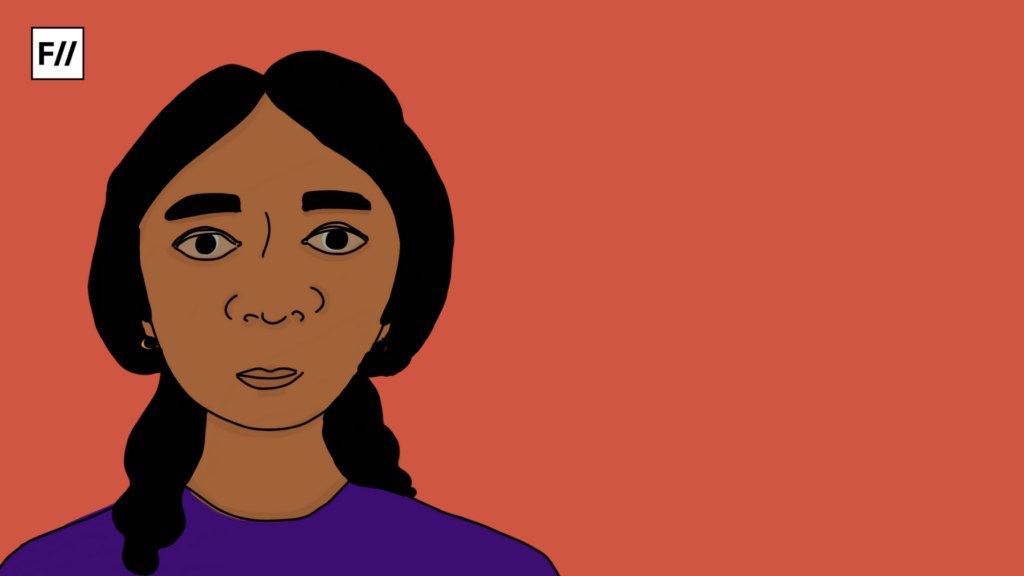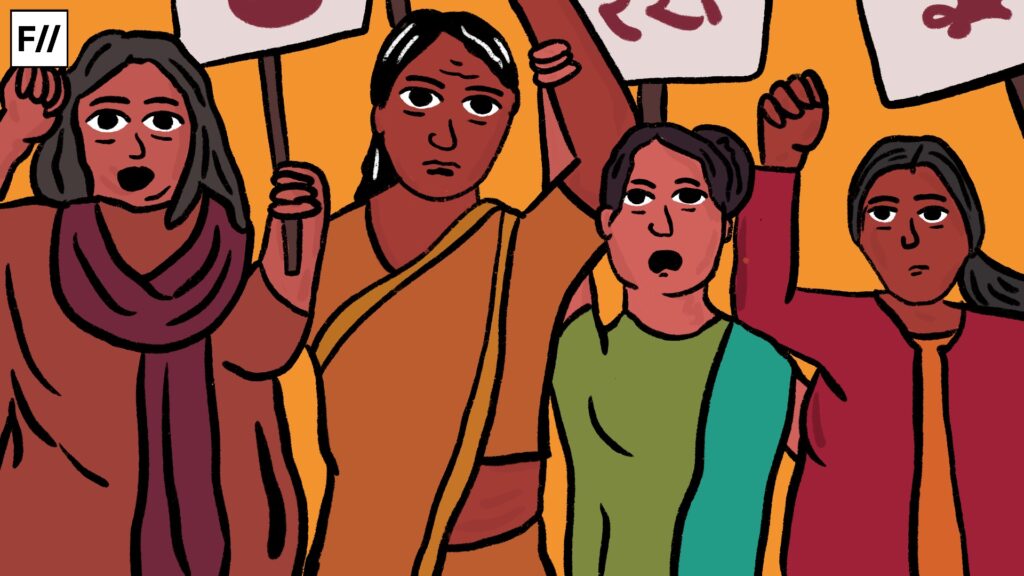Trigger Warning: This article discusses consent and mentions rape and sexual abuse.
On July 1st the Gwalior Bench of the Madhya Pradesh High Court requested the Central Government to consider lowering the age of consent for women from eighteen to sixteen years. This recommendation came on the back of a contentious ruling by the bench, in which a 23-year-old man accused of raping and impregnating a minor girl in April 2020 was acquitted.
This is not the first time that a High Court has suggested lowering the age of consent. Another notable instance was in 2019 when the Madras High Court opined that the age of consent should be lowered to 16 so that consensual sexual relationships between teenagers aged between 16 and 18 would not be criminalised under the Prevention of Children from Sexual Offences Act (POCSO).
This is not the first time that a High Court has suggested lowering the age of consent. Another notable instance was in 2019 when the Madras High Court opined that the age of consent should be lowered to 16 so that consensual sexual relationships between teenagers aged between 16 and 18 would not be criminalised under the Prevention of Children from Sexual Offences Act (POCSO). The matter was broached again when the Karnataka High Court too recommended the same in November 2022.

In fact, the discourse surrounding the age of consent has been active ever since the conception of the POCSO Act in 2013 which expanded the offence of rape to include not just penile-vaginal penetration but also penetration by different body parts and objects and labelled as penetrative sexual assault. At the same time, the age of consent to sexual activity was raised from sixteen to eighteen years. Although this recalibration of the definition of sexual offences against minors was largely applauded, the decision to raise the age of consent was met with mixed responses from child rights activists.
The POCSO act
The POCSO Act was framed with the primary objective of providing a strong legal framework for protecting children from the offences of sexual assault, sexual harassment and pornography. The Act strives to put the children first by adopting child-friendly methods such as child-friendly reporting and investigation as well as speedy trials to be held in designated Special Courts.
The POCSO Act defines a child as a person under the age of 18 years. This effectively means that the consent given by a person below the age of 18 years is irrelevant in matters of sexual interactions.
The case in question
The Madhya Pradesh High Court was dealing with an FIR filed against a 23-year-old man facing charges under several charges including rape under the Indian Penal Code (IPC), the POCSO and the Information Technology (IT) Act.
The accused who used to teach the victim, was reported with repeatedly raping her starting from the month of January until she was impregnated in April of 2020. An FIR was filed in July of the same year resulting in his immediate arrest. He was subsequently not granted bail till three years after the arrest.
The single-judge bench that consisted of Justice Deepak Kumar Agarwal acquitted the accused on 29th July 2023 by releasing a judgement that stated, “As per the prosecution story, she was a minor at the time of incident. This court, looking into the physical and mental development of an adolescent of that age group, would consider it logical that such a person is capable of making a conscious decision as regards his or her well-being. Prima facie, it appears that there is no mens rea (wrong intentions) involved.”
The single-judge bench that consisted of Justice Deepak Kumar Agarwal acquitted the accused on 29th July 2023 by releasing a judgement that stated, “As per the prosecution story, she was a minor at the time of incident. This court, looking into the physical and mental development of an adolescent of that age group, would consider it logical that such a person is capable of making a conscious decision as regards his or her well-being. Prima facie, it appears that there is no mens rea (wrong intentions) involved.”

Following this judgement, Justice Agarwal claimed that the 2012 amendment that raised the age of consent from sixteen to eighteen has “disturbed the fabric of society”. He went on to request the Centre to consider reducing the age of consent from 18 to 16. He elaborated on this stance by saying, “Nowadays, every male or female near the age of 14 years, due to social media awareness and easily accessible internet connectivity, is getting puberty at an early age. Boys and girls are getting attracted to each other owing to this early puberty, resulting in consensual physical relationships. In these cases, male persons are not at all criminals. It is only a matter of age when they come into contact with females and develop physical relationships.“
Why are High Courts demanding that the age of consent be lowered?
The POCSO Act mentions the United Nations Convention on the rights of a child which also recognises a child as being under the age of 18. But unlike the POCSO, the UN Convention also talks about the evolving capacity of adolescents, which includes physical, mental and sexual capabilities; thus rendering an adolescent’s consent relevant in matters of sexual interactions.
Because the POCSO Act does not recognise the consent of those below the age of 18, all consensual sexual relationships between adolescents aged between the years of sixteen and eighteen can be criminalised.
Shraddha Chaudhary, a lawyer and PhD scholar at Cambridge University talks about the ramifications of filing a complaint against an adolescent couple under the POCSO Act in an episode of the podcast In Focus by The Hindu. In the episode, she talks about how sexist perceptions can cloud judgement as in a majority of these cases, the man is viewed as the active participant or the perpetrator of the crime and the woman the passive victim.
Shraddha Chaudhary, a lawyer and PhD scholar at Cambridge University talks about the ramifications of filing a complaint against an adolescent couple under the POCSO Act in an episode of the podcast In Focus by The Hindu. In the episode, she talks about how sexist perceptions can cloud judgement as in a majority of these cases, the man is viewed as the active participant or the perpetrator of the crime and the woman the passive victim.
She goes on to talk about how the law may be misused by the guardians of the girl to file a case in order to recover their daughter who has eloped with a boy or perhaps to punish them. They may even file the case so that the couple is coerced into getting married; thus bestowing social sanction upon the relationship through the institution of marriage. In such cases even if the victim claims that the relationship was indeed consensual, her being under the age of 18 at the time of the sexual interaction will result in her consent being disregarded by the law.

In the hands of such authority figures, the POCSO thus becomes a means by which adolescent sexuality can be penalised. In such cases, the judges are of course at liberty to exercise their discretion and judge each individual case based on the circumstances of the situation. This is how cases such as the Gwalior bench one result in the acquittal of the accused. Nonetheless, a robust legal framework that can help guide the judges in complicated cases involving the POCSO would always be welcome.
However, Chaudhary also cautions against the notion that lowering the age of consent alone will lead to lesser wrongful acquittals. Such a significant decision would also have to be accompanied by legal safeguards that can be put in place to protect adolescents between the ages of sixteen and eighteen from entering into exploitative relationships with adults. Most importantly, lowering the age of consent would be ineffectual without adequate sex education to accompany it. Such an education should not be limited to a chapter on sexual reproduction in school but an understanding of sex and its consequences that can help teenagers navigate adolescent sexuality safely.
About the author(s)
Keerthana (she/her) is a third-year English Literature student at St. Stephen’s College, Delhi University. She is interested in analysing art and pop culture through feminist and other sociocultural theories. She enjoys literature, music, films and the occasional cricket match.




